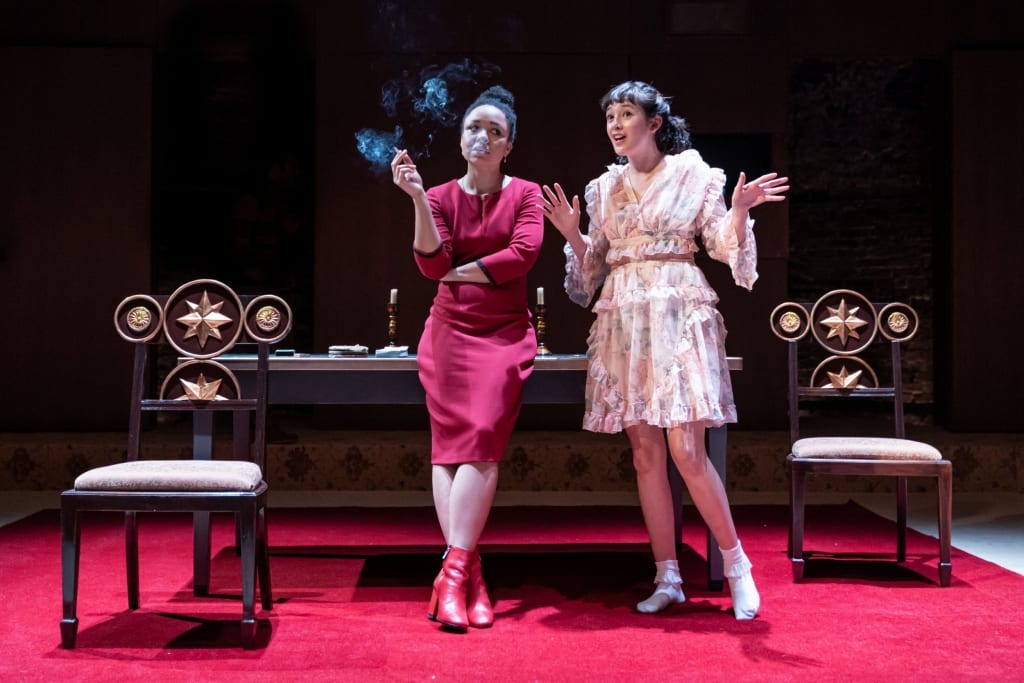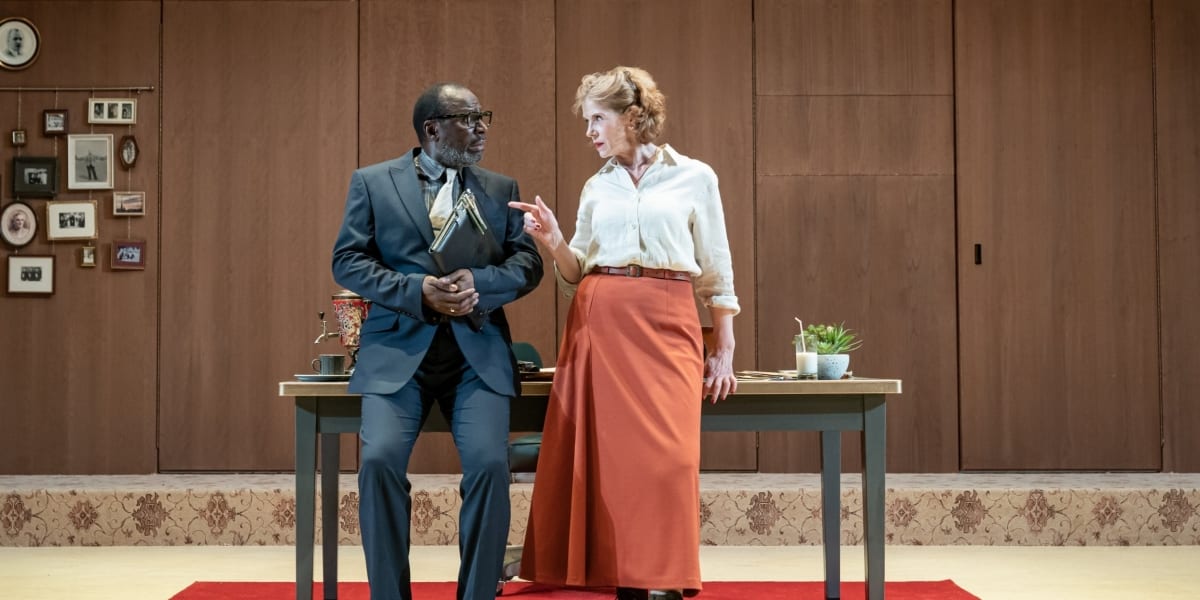Vassa, adapted by Mike Bartlett from Maxim Gorky’s 1910 version of the play, is a biting satire, critiquing the mores of a morally challenged family in pre-revolutionary Russia. It is commendable that the Almeida has chosen to stage a rarely performed play but, in the hands of director Tinuke Craig it struggles to raise many laughs or generate much insight.
Craig has set the play in a non-specific time period that robs the play of any contextual foundation – we just need to accept that capitalism always corrupts society. Craig also adopts colour-blind casting to emphasise how people in the same family don’t ‘look or sound like each other’; they are ‘meant to be a family and yet have no connection’ (Craig quoted in The Guardian, 9 October 2019). They certainly do come across as a diverse and incompatible group, but in a play already burdened with multiple complications – including poisoning, child murder, illicit affairs, off-stage deaths and complex inheritance issues – this choice complicates rather than clarifies the issues.

The design of the piece – set in a wood-panelled office with multiple doorways where people enter in the style of a farce – also creates an atmosphere that undercuts the often harsh and cruel way the characters treat each other. Some of the lines they deliver are truly horrendous, yet the farcical undertone makes it difficult to really empathise with their pain.
Although these choices result in characters who are largely caricatures, there are performances that bring a degree of realism to the action. Alexandra Dowling, as the grossly maltreated Lipa, and Arthur Hughes, as the crippled and tortured Pavel, show us the effect of casual cruelty on those who lack power or are disfigured in some way. Likewise, Danny Kirrane, as Vassa’s son Semyon, and Kayla Meikle as his wife Natalya, convey the dislocation and anxiety of people existing in purgatory whist awaiting their inheritance. Siobhan Redmond must also be commended for stepping in at short notice to take over the lead part following Samantha Bond becoming ill.
However, despite these performances, the overall impression is one of confusion, disconnection and lack of focus. It is a production that should make us see how capitalism can distort family life – especially when an inheritance is at stake. Yet, at the end of this production one is left wondering what might have been, rather than what is.

